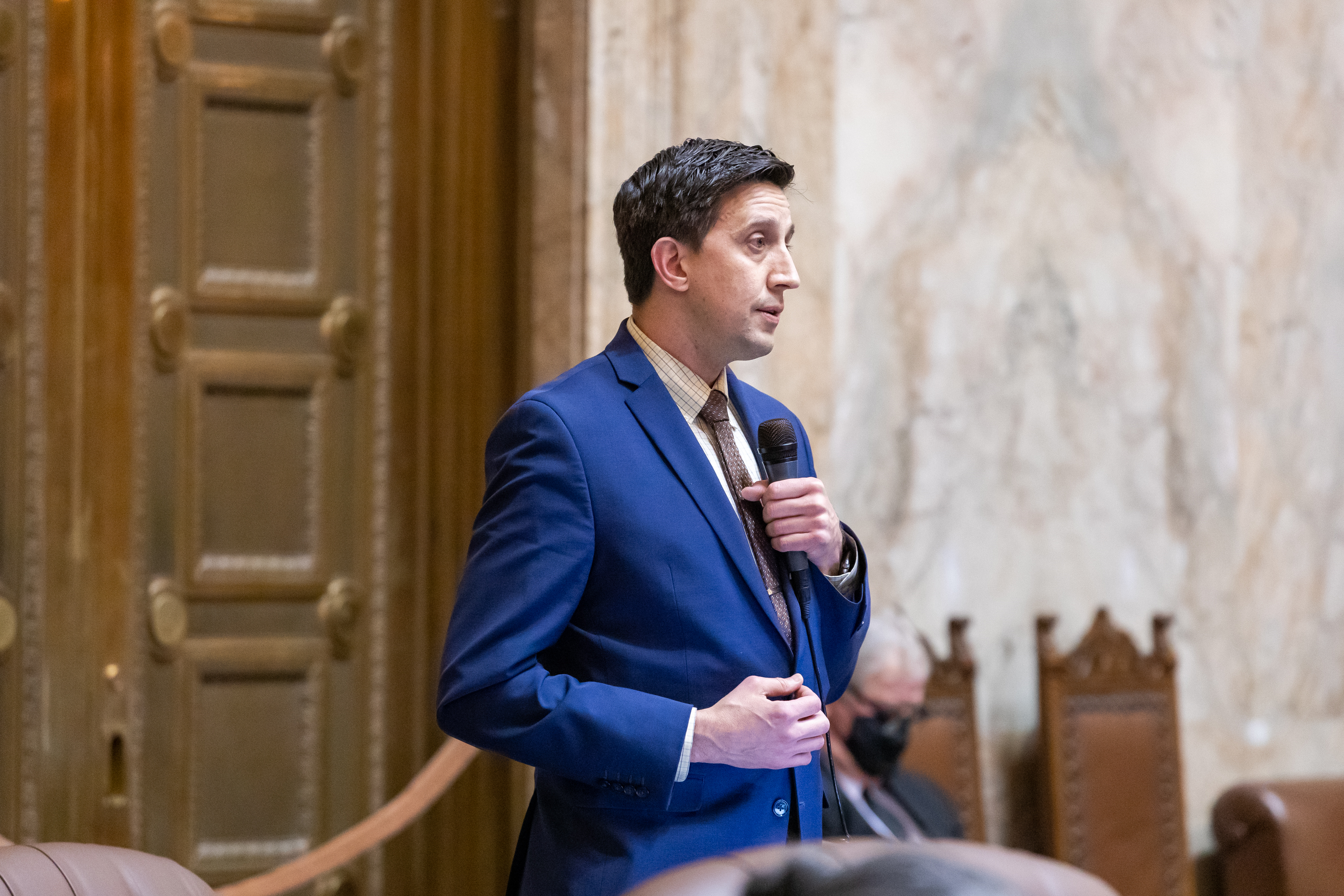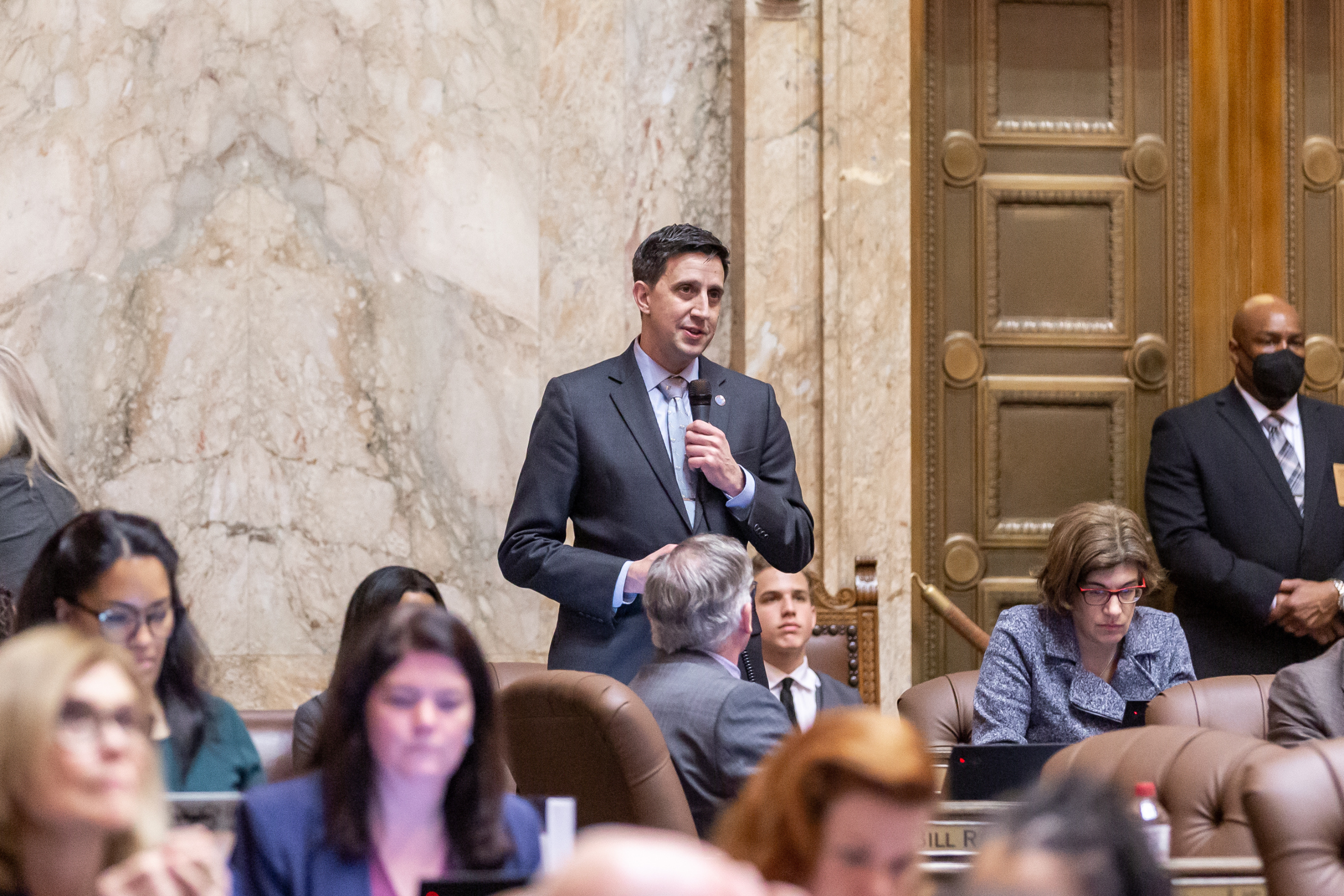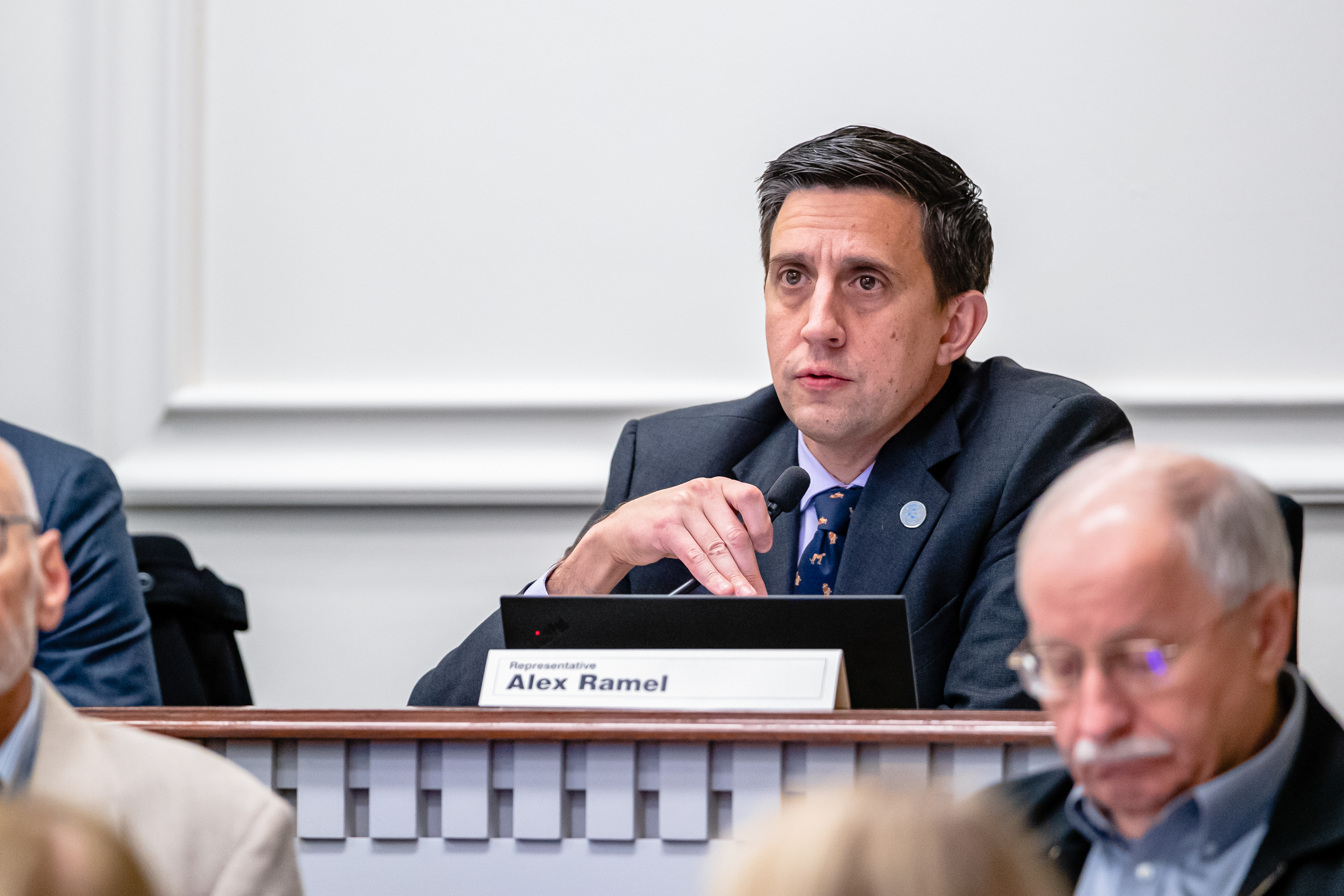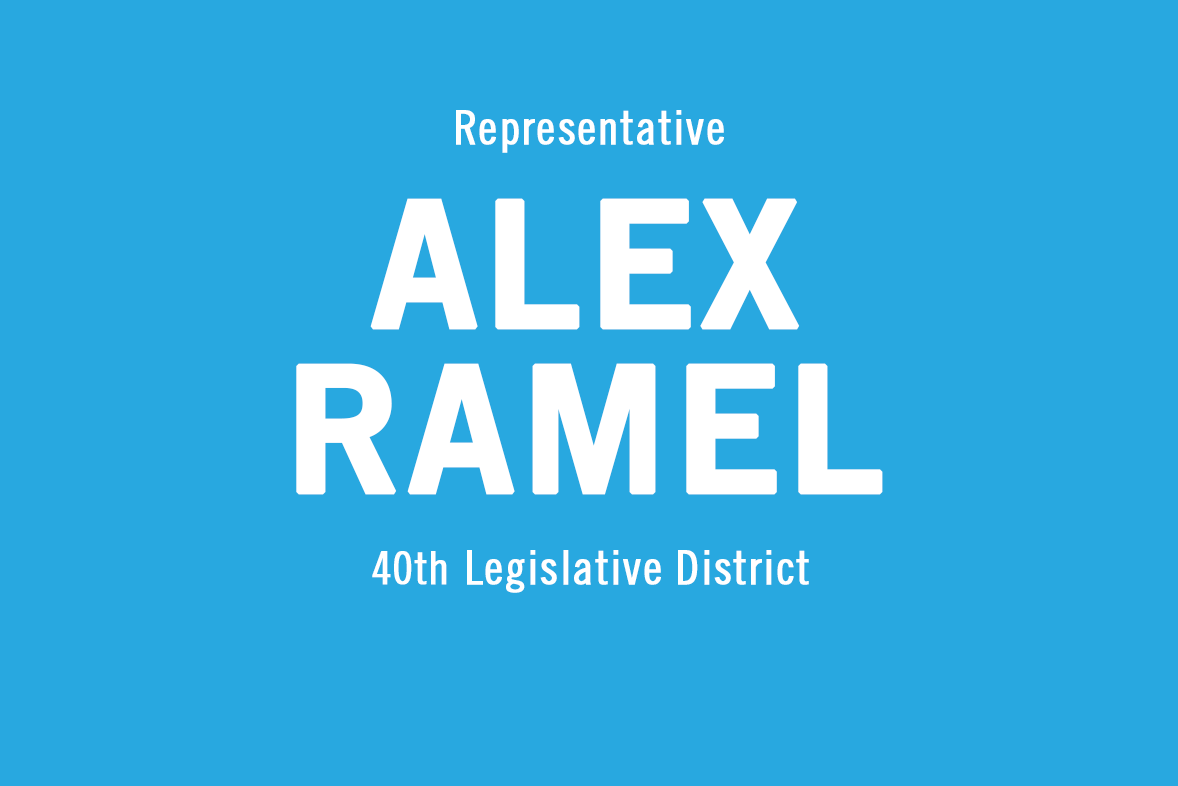Friends and Neighbors,
At the beginning of this legislative session House Democrats committed to protecting Washington’s families and communities, and to ensuring an equitable and inclusive recovery. We made our goals and focus clear. My hope is that you will evaluate how well our legislature performs at protecting the health, safety, and well-being of families and communities by how we prioritize COVID-19 response, economic recovery, climate change, and addressing systemic racism. As we head into the last few weeks of this session, crucial bills in these areas are still possible but uncertain. This work is a marathon, and we need to get across the finish line.
Budget Highlights
This weekend the House will be working to pass our version of the budget. While there is more work to do before this is passed, our first draft reflects our priorities and our commitments. There are a few areas I’m especially proud to tell you about:
- $1.9 billion for homelessness and housing, including enough rental assistance to protect all those who have fallen behind during the pandemic from facing eviction and new revenue dedicated to permanent supportive housing to address our homelessness crisis.
- $2.7 billion for public health and healthcare, including more than a billion dollars to continue to fight COVID-19 with vaccinations, contact tracing and testing.
- $790 million for early learning and childcare, including stabilization grants for childcare providers, and an ongoing commitment to increasing the available slots and the reimbursement rates.
- $340 million for the immigrant relief fund, to support our neighbors who, because of broken and unjust laws, have been left out of much of the federal support.
- $850 million in small business recovery support, including small business grants.
A more complete summary is available here, and all of the details and accompanying documents are available on our LEAP system.
Progressive Revenue
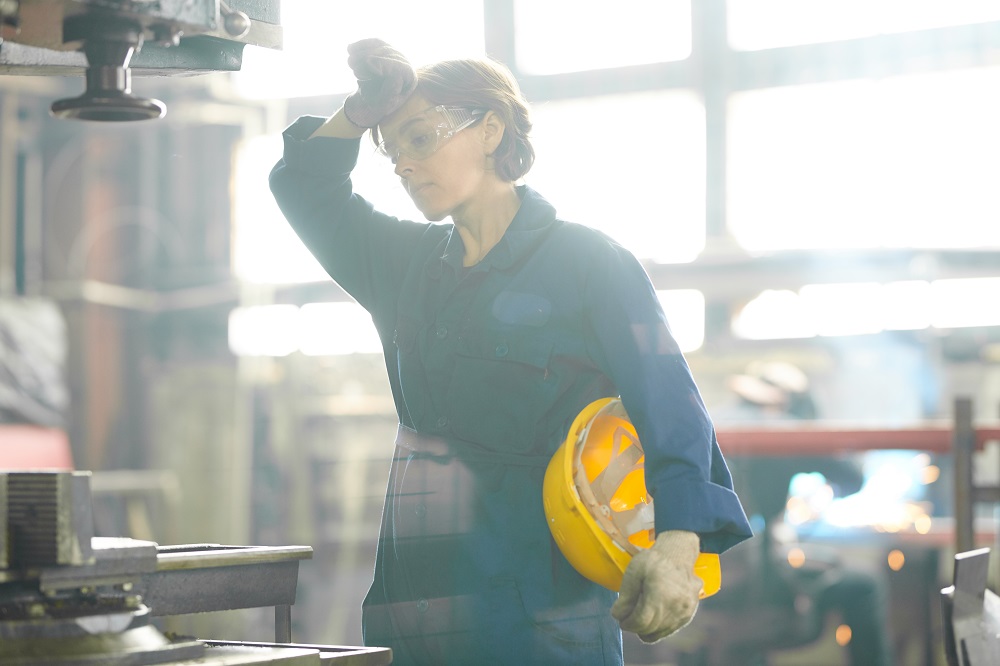
I sit on the Finance Committee, which oversees tax policy. This week I was proud to vote for two exciting bills, and am hopeful that we will advance another important tax policy in the coming weeks.
Washington has THE MOST upside down tax code in the nation. Low-income families pay over six times more in taxes as a share of their income. And over the past year, that inequality has only grown. When millions in Washington were hoping for extended unemployment or hazard pay or the smallest of loans to save their small business, a few billionaires saw their wealth skyrocket. The inequality in our system and in our tax code is clear, and it is time to fix it.
This week we advanced the Washington State wealth tax, which is a 1% annual tax on intangible wealth in excess of $1 billion. Fewer than 100 people in Washington would pay this tax. The same day, we advanced an anti-displacement property tax exemption, which would return much of that revenue in the form of a reduction in the state property tax that would benefit millions of people across the state.
In the near future, the Finance Committee will also vote on a Washington State capital gains excise tax. Right now the bit of wealth that most of us can attain is in the form of our home. When we go to sell it, we pay a real estate excise tax. But the wealthiest in our society have most of their wealth in intangible assets like stocks and securities. When they sell those things, they contribute nothing back. A capital gains excise tax would tax that transaction for about 9,000 people in Washington each year, and dedicate the revenue to supporting early childhood education and tax fairness.
Our historical reliance on taxes paid by low- and middle-income people has created imbalance and instability in our state’s revenue. It’s not only unjust, it’s ineffective. These are all important steps for comprehensive tax reform, asking those who are thriving to contribute a little bit more, so that those who are struggling to stay afloat can see help on the horizon.
Press Conference with the Governor in Anacortes
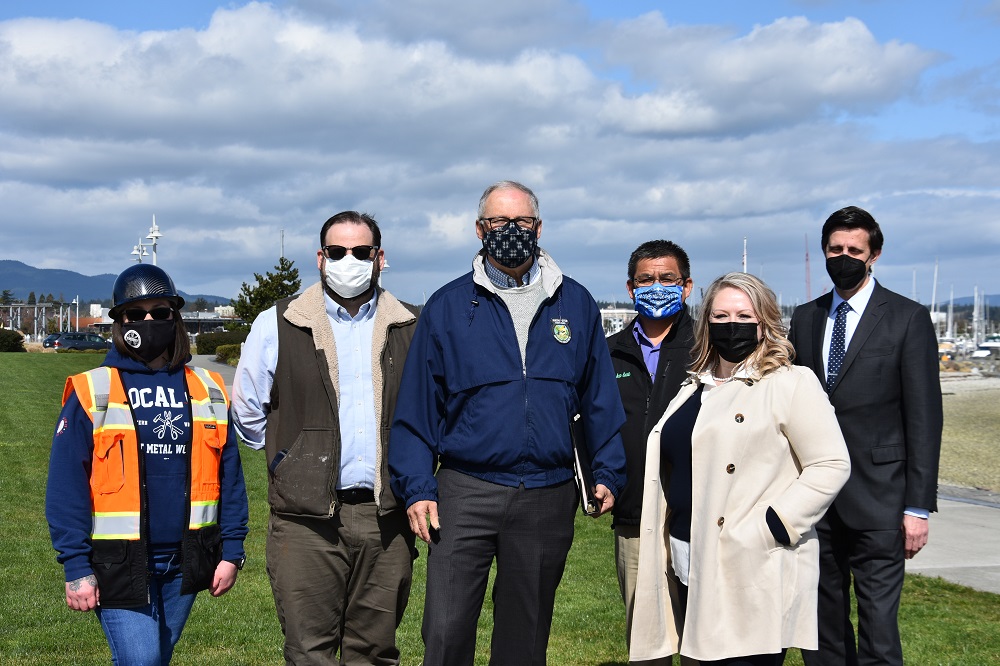
This week, I had the pleasure and honor of joining Governor Jay Inslee in Anacortes to talk about the potential and significance of the Washington Climate Commitment Act and Clean Fuels Standard bills. Climate change is already having devastating impacts in our state, from wildlife habitats being destroyed to waterways ruined. We are poised to take significant action on climate change this session, and I was proud to participate in this event to share how these policies will help us mitigate the impacts of climate change and move toward a job-creating, green energy economy.
From where we stood, the two oil refineries at March Point were visible in the background. Those facilities employ a couple of thousand workers, and provide thousands more regular work as part of maintenance, repairs and upgrades. By creating a market for biofuels right here in Washington, we can build our biofuels industry. Passing a clean fuels standard will give those workers confidence that the clean energy economy will have a place for them too.
In Service,

Rep. Alex Ramel
